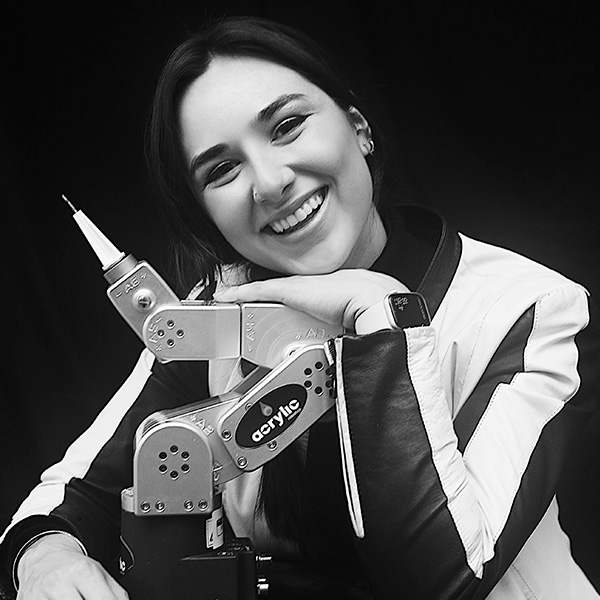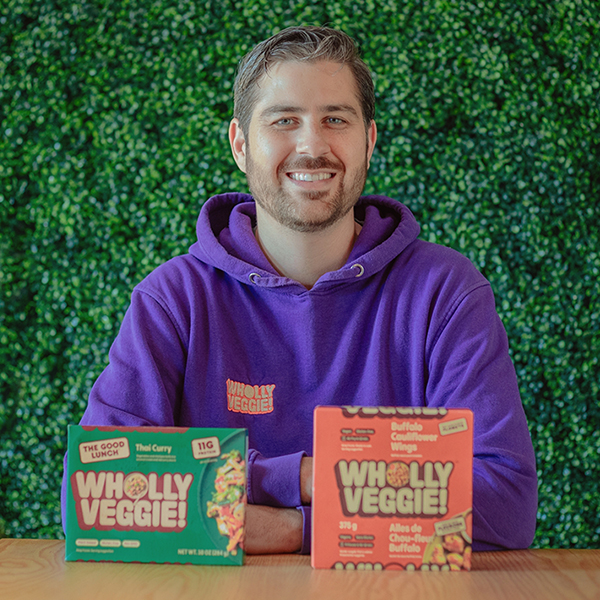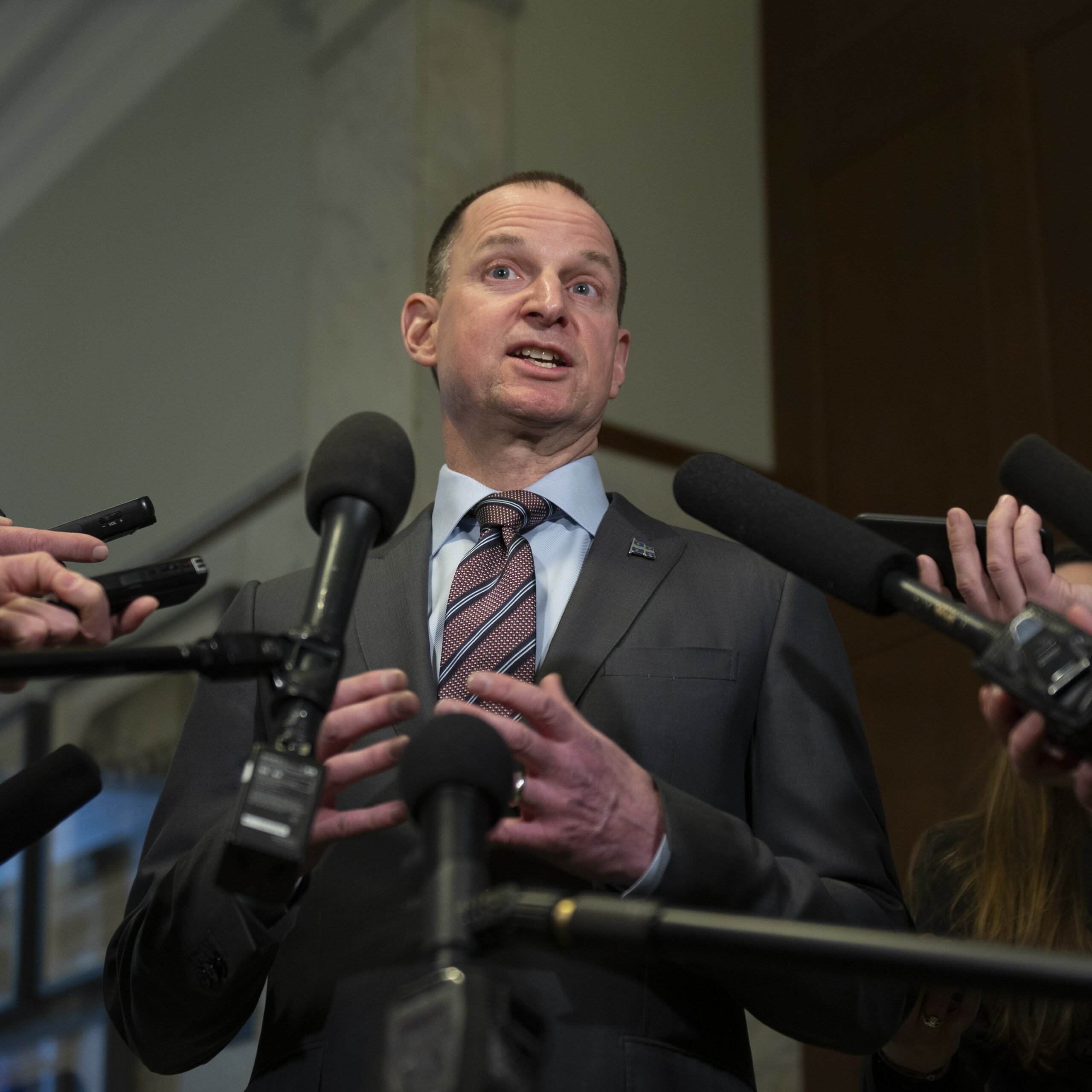Shortly after he graduated from Harvard Business School with his MBA, Luc Sirois, BEng’92, sat down with the founder of a young e-commerce company who was looking to hire.
“I had donuts with Jeff Bezos,” Sirois says. “Back then I would have been employee number eight at Amazon. He was trying to convince me that he was going to be successful.”
Sirois would have been a catch. He had been named a George F. Baker Scholar at Harvard, a distinction reserved for the top five per cent of the MBA graduating class.
But Sirois was determined to return home to Canada and Quebec – and that made him unusual.
“Out of 25 Canadians that go to the Harvard Business School per year, only two or three come back,” says Sirois during an interview in the Montreal offices of the Conseil de l’innovation du Québec, where he has served as executive director and as Quebec’s chief innovation officer since 2020.
He is the first to have that role and the job places his focus squarely on helping the Quebec economy to become more innovative. But that’s just one of the hats he wears.
Casting an eye on AI
Sirois also has a mandate from the Quebec government to provide advice on the “development, ethical and responsible use of artificial intelligence.”
On that project, he is working alongside Yoshua Bengio, BEng’86, MSc’88, PhD’91, the founder and scientific director of Mila – Quebec Artificial Intelligence Institute. Bengio has called for “better guardrails” for AI, to ensure the security of its use and to head off a possible loss of human control over its development.
Sirois and his team have met with 150 experts so far and will listen to hundreds of other perspectives before delivering their report this fall.
It’s too early to talk about what the report will propose, but Sirois makes it clear that he shares some of Bengio’s concerns. “There’s a lot of good [associated with AI], but let’s make sure to have responsible mechanisms,” he says.
The magic of ‘black boxes’
Sirois has an interesting – bordering on eclectic – educational background, but he sees it all as part of a natural progression.
He grew up in St-Jean-sur-Richelieu, south of Montreal, and for his undergraduate studies, he chose to study electrical engineering at McGill. The University’s international profile appealed to him, as did the opportunity “to learn English and to connect with the English community here and in the world.”
Why electrical engineering?
“I was fascinated by [it], and for me it was magic, the magic of ‘black boxes’ that do things,” Sirois says, looking around the lab where the interview is taking place, noting the computers, audio-visual equipment and the other “black boxes” he uses in his work.
“It’s a magical power that you get [from] creating an object that can do things.”
He earned a Greville Smith Scholarship at McGill, awarded to students “who have shown promise of future success and responsible citizenship.”
“It was quite an honour for me, coming from [the] countryside, with a very modest background,” Sirois says. He felt pressure to prove that his selection was not a mistake. “I made sure to kind of deliver on the promise.”
After graduating, he joined Bell and climbed the ranks rapidly, becoming its director of marketing and new media in 1993.
“The Bell days were about getting into the telecom world … creating new services, understanding the new digital services,” says Sirois. He recognized that the world of communications was changing dramatically and decided that he wanted to go back to school to get a better grasp on what was happening. So, he began a degree in communications and journalism at Université de Montréal.
At U de M, a documentary he created about Quebec rock star Martin Deschamps won the Prix Lisette-Gervais, one of the top honours for Quebec students in journalism and communications.
Next, he decided he wanted to have a better understanding of how organizations work, and why some are more efficient than others. That prompted his MBA studies at Harvard.
He gives former McGill principal David Johnston part of the credit for putting Harvard on his radar. While studying at McGill, Sirois met Johnston at a reception for scholarship winners. Johnston reminisced about his own student days at Harvard – which startled Sirois.
“Canadians go to Harvard?” he asked. “Well, of course,” Johnston replied.
After earning his MBA, Sirois went to work for McKinsey & Company, the global consulting firm, reasoning that the job could offer both international experience and a path back home. He would work for the company in New York, Toronto, Zurich, Paris, London, and Montreal.
Pushing against conformity
His next few jobs were all at companies that involved healthcare and emerging technologies, including Resonant Medical Inc., which he co-founded, and which developed 3D ultrasound image-guided adaptive radiotherapy hardware and software.
Those experiences helped shape his perspective on how innovation happens – and how it doesn’t happen – in the healthcare sector.
“The medical world is very strict and rigid and conformist,” says Sirois. He helped develop a plan to shake things up. He is the co-founder of Hacking Health and continues to chair the non-profit networking hub which now boasts chapters across Canada and in 21 other countries.
Hacking Health fosters collaborations between healthcare experts and tech innovators with a focus on real-world problems.
“We introduced [medical experts] to the techies and the engineers and the designers and start-uppers and all of those health care professionals suddenly saw their dreams of creating something [to address a need] to be possible and it was a lot of fun.”
The group organized its big launch at Thompson House at McGill. “People flew in from everywhere across the country to be there. Hundreds of people from everywhere, building healthcare solutions.”
The Quebec government took note. When it created Prompt, a new initiative that spurred innovation by encouraging closer collaborations between Quebec companies and university researchers, Sirois was selected to lead the effort.
His work at Prompt led him to his current role heading up the Conseil de l’innovation.
Sirois says Quebec has elements in its favour for promoting innovation – talented people, abundant venture capital – but it faces a worrisome decline in the research and development it needs to promote economic growth. One of the problems is a shortage of professionals in some key areas. “We don’t have [enough of] those magical engineers,” he says.
Sirois and his team developed the Stratégie québécoise de recherche et d’investissement en innovation to help guide the government’s efforts. One of the measures taken involved the creation of “a network of innovation counsellors,” says Sirois, “so people in every city in the province, in every region” could have access to advice and support and information on the programs available to them.
Sirois has big ambitions for Quebec. In an interview with La Presse last year, he said he hoped to see Quebec double its number of start-ups.
“We could be a nation that develops the green tech that will be sold to the world, we could be the ones that develop the next generations of transportation.”
Does Sirois ever think back to that encounter over donuts with Bezos and imagine what his life might be like had he said yes?
Sirois has no regrets. He believes he is where he should be. “I’ve got enough money to be okay,” Sirois says. He wants to help build an economy where “our children [can] be thriving.” If he can make a useful contribution to that goal as Quebec’s chief innovation officer, that “will be my legacy.”


